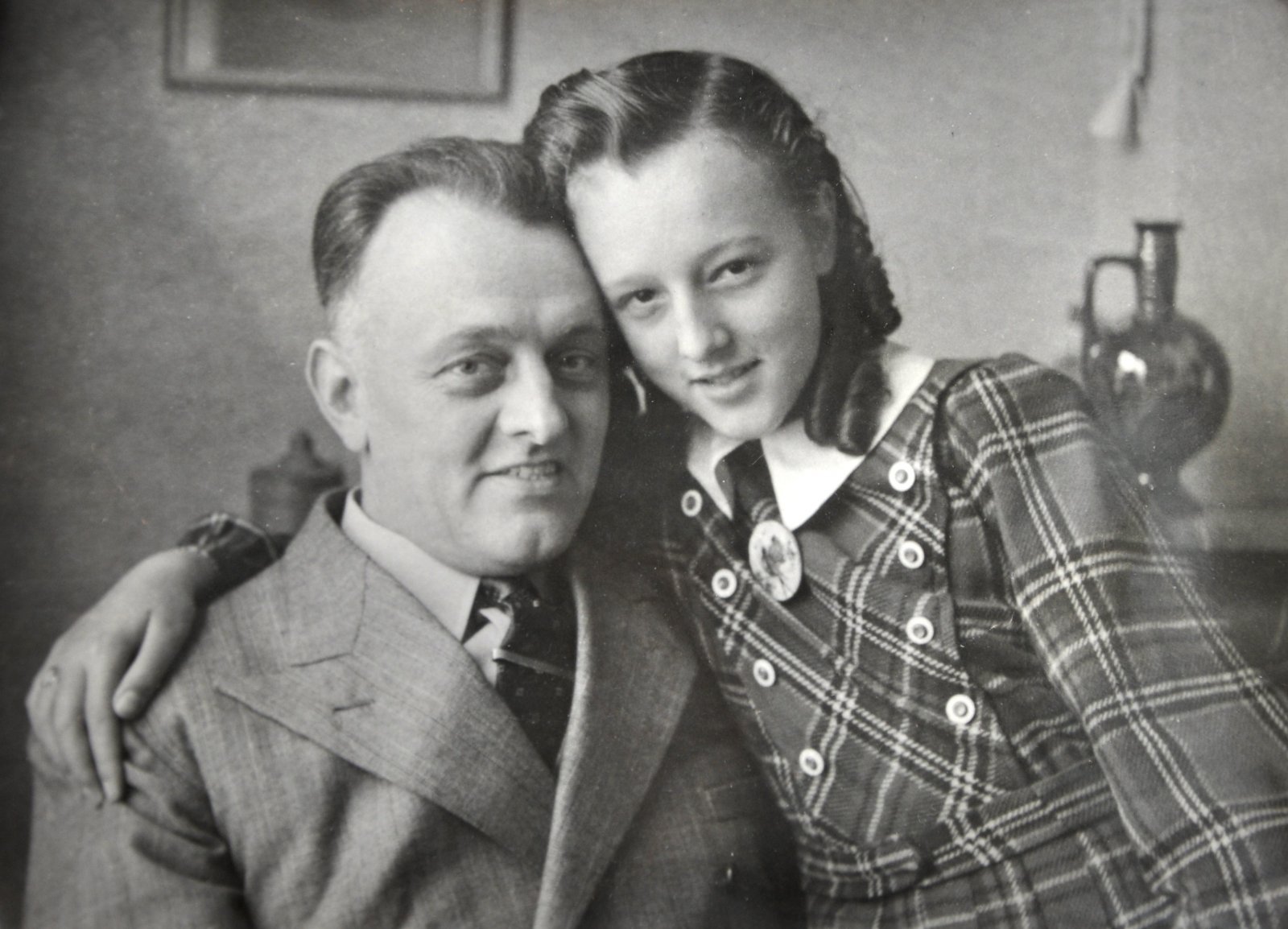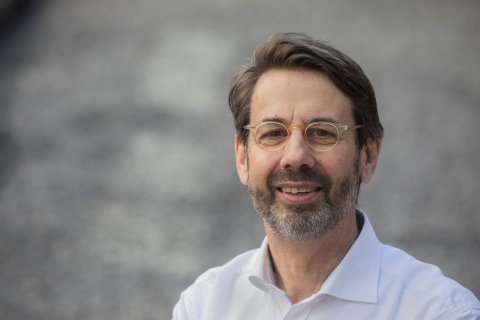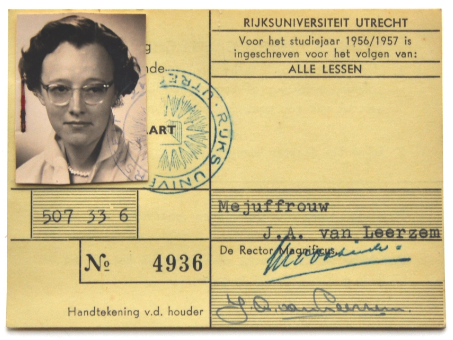University receives bequest from alumna

Last year, Utrecht University received the largest bequest in its history. Johanna Alida van Leerzem left her entire estate, with a net worth of €1.2 million, to her alma mater. The bequest will be managed by the Utrecht University Fund. Ms van Leerzem’s generous contribution is facilitating clinical scientific research by young scientists in the field of internal medicine.
Johanna Alida (Annie) van Leerzem was born on 25 January 1933 in Rotterdam, the only child of Jacob van Leerzem and his wife four years his junior, Petronella Naaktgeboren, whom he had married in 1930. It was the height of the Great Depression in the Netherlands. Annie’s father worked as a marine engineer on sea-going vessels. Although he spent a lot of time away from home, it meant the family was reasonably well off. Yet this period of economic malaise and war had a formative impact on Annie, one which continued to reverberate throughout her life. As a little girl, she must have been able to see the terrible bombing of Rotterdam by the German Luftwaffe in 1940 from the family’s upstairs apartment on the Polderlaan in South Rotterdam. The Dutch famine of 1944–45, during which her father worked as an inspector for the State Coal Agency (Rijkskolenbureau), must also have made a huge impression on her. She remained frugal her entire life, even after she’d completed her studies and could have afforded to live a little more comfortably.
Right after the war ended, her parents enrolled Annie in the prestigious Gymnasium Erasmianum secondary school. She was a talented, diligent student with a knack for the sciences. Because she chose to focus on STEM subjects, she was in a small class with four boys and just one other girl. Exactly six years later Annie sat her final exams, in the summer of 1951. We don’t know her exact reasons for enrolling in a Medicine degree programme. Since at the time the University of Rotterdam had no Faculty of Medicine yet, she had no choice but to leave her hometown. And so she began her studies at Utrecht University’s Faculty of Medicine, which in those days was closely intertwined with the Stads- en Academisch Ziekenhuis (City and University Hospital), as it was still called at the time. Her father was now working as Chief Engineer on the Holland America Line and spent a lot of time at sea. During the first year of her studies, she and her mother lived with relatives in Utrecht city centre. Not long after that, the family moved to the Bilderdijklaan in Bilthoven.

Her parents spared no expense putting their daughter through university. As well as paying the 325-guilder tuition fee and the 10-guilder enrolment fee, they also paid for her books, a dissection kit and an expensive microscope that cost 750 guilders, along with the matching 110-guilder mechanical stage. Annie went about her studies very conscientiously, attending all her practicals and lectures. She filled dozens of notebooks with class notes and made hundreds of sketches of cells, joints, organs and other body parts. In 1959 she qualified as a general practitioner at what was then still referred to as the Rijksuniversiteit Utrecht, or State University of Utrecht.
Although Annie remained interested in medicine throughout her life and continued to be on the list of registered medical practitioners, she never went on to practice her profession: the responsibility of looking after her ailing parents took up all of her attention. They died in quick succession in the late 1990s, when she was already in her sixties. She remained unmarried until her death on 25 January 2018 and led a sober, fairly solitary life. With her bequest, she was ultimately able to make a significant contribution to the field of study that was so close to her heart.

Good cause: The Van Leerzem Fund for scientific research
A named fund has been established to hold Annie van Leerzem’s bequest. The resources in the Van Leerzem Family Fund will be used for patient-oriented scientific research and fundamental research conducted by the Internal Medicine and Dermatology division of University Medical Center Utrecht. Professor Carlo Gaillard, UU alumnus, internist-nephrologist and chair of this division: ‘The fund enables us to stimulate original clinical scientific research by promising young researchers over longer periods of time. It’s an important source of support in addition to the existing funding streams. And the fact that this contribution comes from a UU alumna makes it all the more special.’
Bequeathing an endowment to science
In this rapidly changing society, private donations to scientific research and education are becoming more and more important. Have you ever thought about leaving your estate — or part of your estate — to the University as a way to contribute to a better future and the pioneering research that is needed to bring this future about? Every contribution, big or small, is very welcome. The Utrecht University Fund is happy to help you explore the options. For more information, contact Robbert Jan Feunekes.
The University Day on Saturday 30 March will feature an information session about leaving bequests to the University (in Dutch). Sign up at the University Day website.
In addition to the Van Leerzem Family Fund, the Utrecht University Fund also manages another twenty named funds.

Text Joost Dankers
This article was previously featured in alumni magazine Illuster (March 2019). Illuster is published two times a year and sent free of charge to all alumni with a known postal address in the Netherlands.

